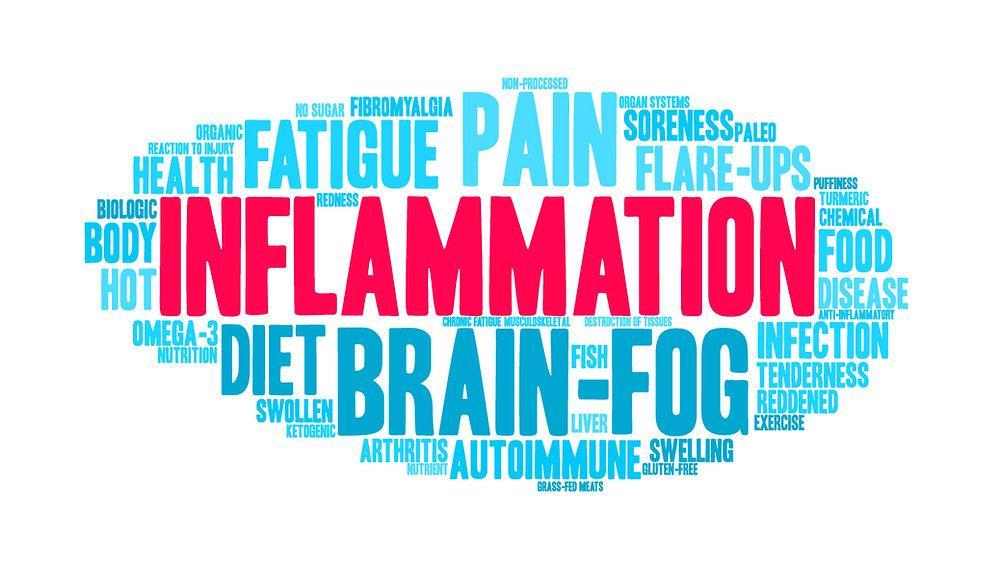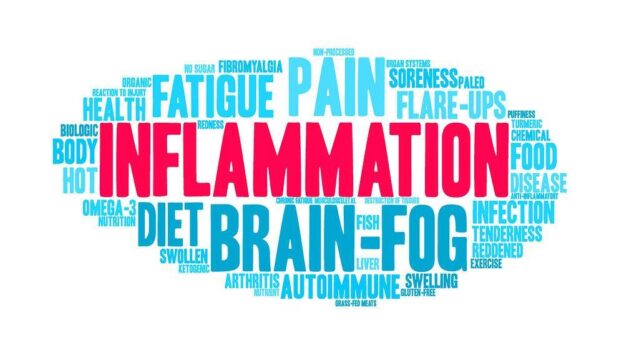Brain Health and Chronic Inflammation expert opinion from Dr. Rao, the Renowned Neurosurgeon
Discover the connection between chronic inflammation and brain disorders. Learn prevention and management strategies for better brain health. Consult with Dr. Rao, the best neurosurgeon in Guntur and India, at Dr. Rao’s hospital for personalized guidance. Take control of your well-being today.
Introduction
Chronic inflammation is a complex biological process that significantly develops and progresses various health conditions. Recent research has shed light on the connection between chronic inflammation and brain disorders, highlighting the importance of understanding this link for prevention and management. This blog will explore the relationship between chronic inflammation and brain disorders and discuss strategies for preventing and managing inflammation to support brain health. We will also highlight the expertise of Dr. Rao, the best neurosurgeon in India, working at Dr. Rao’s hospital, the leading neurology hospital in Guntur.
Understanding Chronic Inflammation
Chronic inflammation is a persistent and long-term state of inflammation in the body. While acute inflammation is a natural response to injury or infection, chronic inflammation occurs when the immune system is constantly activated, releasing inflammatory markers and damaging healthy tissues. This chronic inflammatory state can contribute to developing and progressing various diseases, including those affecting the brain.
The Link Between Chronic Inflammation and Brain Disorders
Chronic inflammation has been implicated in the development of several brain disorders, including:
- Alzheimer’s disease: Chronic inflammation can contribute to the accumulation of plaques and tangles in the brain, leading to cognitive decline and memory impairment.
- Parkinson’s disease: Inflammatory processes in the brain can contribute to the degeneration of dopamine-producing neurons, causing movement difficulties and other symptoms.
- Multiple sclerosis: Chronic inflammation can damage the protective covering of nerve fibers, disrupting the communication between the brain and the rest of the body.
- Depression and anxiety: Inflammation has been associated with changes in brain chemistry and the development of mood disorders.
- Stroke: Inflammation plays a role in the development and progression of strokes by contributing to brain tissue damage secondary to reduced blood flow.
- Migraine: Inflammatory processes in the blood vessels and nerves of the brain can trigger migraines and increase their severity.
- Epilepsy: Chronic inflammation can lead to abnormal brain activity and increase the risk of seizures in individuals with epilepsy.
- Autism spectrum disorders: Inflammatory markers are elevated in individuals with autism, suggesting a potential link between chronic inflammation and these neurodevelopmental disorders.
Prevention and Management of Chronic Inflammation
While chronic inflammation can have detrimental effects on brain health, several strategies can help prevent and manage inflammation:
1. Follow a Healthy Diet
- Consume anti-inflammatory foods: Fruits, vegetables, whole grains, fatty fish (rich in omega-3 fatty acids), nuts, and seeds.
- Avoid pro-inflammatory foods: Limit your intake of processed foods, sugary beverages, refined carbohydrates, and unhealthy fats.
2. Maintain a Healthy Weight
Excess body weight, especially abdominal fat, can contribute to chronic inflammation. Aim to maintain a healthy weight through a balanced diet and physical activity.
3. Engage in Regular Exercise
Exercise has anti-inflammatory effects on the body. Aim for at least 150 minutes of moderate-intensity aerobic activity or 75 minutes of vigorous-intensity activity per week.
4. Get Sufficient Sleep
Adequate sleep is crucial for regulating inflammation in the body. Aim for 7-9 hours of quality sleep each night.
5. Manage Stress
Chronic stress can contribute to inflammation. Practice stress-management techniques such as meditation, deep breathing exercises, and engaging in enjoyable activities.
6. Avoid Smoking and Limit Alcohol Consumption
Both smoking and excessive alcohol consumption can promote inflammation in the body. Quit smoking and drink alcohol in moderation, if at all.
7. Incorporate Anti-Inflammatory Herbs and Spices
Include turmeric, ginger, garlic, cinnamon, and other herbs and spices known for their anti-inflammatory properties in your meals.
8. Stay Hydrated
Drink plenty of water throughout the day to help flush out toxins and reduce inflammation.
9. Consume Omega-3 Fatty Acids
Include sources of omega-3 fatty acids in your diet, such as fatty fish (salmon, mackerel, sardines), walnuts, flaxseeds, and chia seeds. These healthy fats have anti-inflammatory effects.
10. Optimize Vitamin D Levels
Maintain adequate vitamin D levels through safe sun exposure, consuming foods fortified with vitamin D, or taking supplements. Vitamin D plays a role in modulating inflammation.
11. Eat Probiotic-Rich Foods
Include fermented foods like yogurt, kefir, sauerkraut, and kimchi. These foods contain beneficial bacteria that support gut health and reduce inflammation.
12. Minimize Sugar Intake
Limit your consumption of sugary foods and beverages, as excess sugar can trigger inflammation.
13. Engage in Mindful Practices
Mindfulness meditation, yoga, and deep breathing exercises can help reduce stress and inflammation.
14. Get Regular Check-ups
Schedule regular check-ups with your healthcare provider to monitor your overall health and detect any underlying conditions that may contribute to chronic inflammation.
15. Limit Exposure to Environmental Toxins
Reduce exposure to environmental toxins, such as air pollution, pesticides, and chemicals, which can trigger inflammation. Use natural and eco-friendly products whenever possible.
16. Maintain a Healthy Gut
Support your gut health by consuming a fiber-rich diet, incorporating probiotics, and avoiding excessive use of antibiotics, which can disrupt the gut microbiome and promote inflammation.
17. Practice Regular Exercise
Engage in moderate-intensity aerobic exercises, strength training, and flexibility activities to promote overall health and reduce inflammation.
18. Seek Stress Management Techniques
Incorporate stress-management techniques such as journaling, engaging in hobbies, spending time in nature, or seeking counseling or therapy to reduce chronic stress and its impact on inflammation.
19. Get Quality Sleep
Prioritize healthy sleep habits by establishing a regular sleep schedule, creating a relaxing bedtime routine, and ensuring a comfortable sleep environment.
20. Collaborate with Medical Professionals
Consult with healthcare professionals, such as Dr. Rao, the best neurosurgeon and spine surgeon in Guntur and India, to develop a personalized plan for managing chronic inflammation and promoting brain health. Working at Dr. Rao’s hospital, Dr. Rao will provide expert guidance and treatment options tailored to your specific needs.
By implementing these strategies and seeking professional advice, you can reduce chronic inflammation, mitigate its impact on the brain, and support your overall well-being. Remember, prevention is key, and taking proactive steps toward managing inflammation can positively affect brain health and reduce the risk of associated disorders.
Dr. Rao’s Expertise
Dr. Rao, the best neurosurgeon in India, working at Dr. Rao’s hospital, has extensive neurology experience and understands chronic inflammation’s impact on brain health. With his expertise, he provides comprehensive care to patients, focusing on preventing and managing inflammation-related brain disorders.
Dr. Rao’s Hospital: The Best Neurology Hospital in Guntur
Dr. Rao’s hospital is renowned for its excellence in neurology care. With state-of-the-art facilities and a team of highly skilled healthcare professionals, the hospital offers comprehensive diagnostic and treatment services for various brain disorders. The hospital is led by Dr. Rao and is committed to providing personalized and compassionate patient care, ensuring optimal outcomes.
Conclusion
In conclusion, chronic inflammation has been linked to various brain disorders. Still, through lifestyle modifications, a healthy diet, regular exercise, stress management, and medical intervention, it is possible to prevent and manage chronic inflammation effectively. Dr. Rao’s hospital, renowned for its neurosurgery and spine surgery expertise, is dedicated to providing exceptional patient care, including comprehensive guidance on inflammation management.
Take charge of your brain health today, and consult with Dr. Rao and his team at Dr. Rao’s hospital to explore the best strategies for preventing and managing chronic inflammation. Together, we can promote a healthier brain and improve overall quality of life.
Call on 9010056444 or 9010057444 for an appointment
Stay informed and connected with Dr. Rao’s hospital for more valuable insights and updates on brain health, neurosurgery, and spine surgery. We are committed to being your trusted partners in providing top-notch medical care and promoting well-being.
Tags: chronic inflammation, brain disorders, brain health, prevention, management, Dr. Rao, neurosurgeon, spine surgeon, Guntur, India, Dr. Rao’s hospital, inflammation management, lifestyle modifications, healthy diet, exercise, stress management


